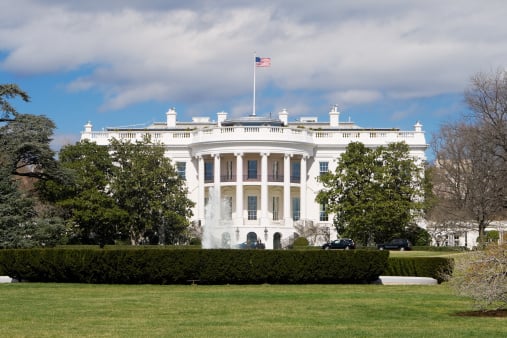The Bipartisan Policy Center (BPC) put out a nifty little analysis of when the United States should reach its debt ceiling. Sometime between February 15 and March 1, America will have no reasonable way to pay its bills or make payments on its debt. The Treasury might decide to pay a few of its bills after the day the debt limit is reached, but almost all confidence in the viability of U.S. sovereign paper will have been undermined, maybe. Of course, the financial assumptions of the government’s cash flow may be right and the impact of the cash flow problem may be wrong. Source: thinkstock
Source: thinkstock
The BPC statement about what the future of America’s finances should be depressing to any reader of its report:
In addition to prioritization of payments, Treasury must also roll over roughly $500 billion in debt that matures in the February 15-March 15 period. Finally, BPC predicts that a debt limit increase of $1.1 trillion would be needed to fully fund the government through the end of 2013 and another $1 trillion through the end of 2014.
Where the analysis stumbles is over the ability of Treasury to issue IOUs, and whether that kind of obligation would be sufficient, to holders of U.S. debt, those who supply the government with goods and services, and funds that cover federal government worker retirement. Does an IOU put Treasury over the debt cap? That may depend on the strength of the agreements to bind Treasury to eventually make those payments. Certainly, most of the parties involved would believe that Congress and the president would quickly agree to some solution if faced with a financial disaster that has no precedent in recent history.
The BPC analysis has its foundation in the notion that Treasury has exhausted all options to fund the government and debt service. However, it may be able to offer nonbinding promises that are supported by the certainty that politicians, and the people who elect them, will only take an extreme risk for so long. The debt cap issue will be resolved, but perhaps after March 1, because the alternative is unimaginable.
Sponsored: Want to Retire Early? Here’s a Great First Step
Want retirement to come a few years earlier than you’d planned? Or are you ready to retire now, but want an extra set of eyes on your finances?
Now you can speak with up to 3 financial experts in your area for FREE. By simply clicking here you can begin to match with financial professionals who can help you build your plan to retire early. And the best part? The first conversation with them is free.
Click here to match with up to 3 financial pros who would be excited to help you make financial decisions.
Thank you for reading! Have some feedback for us?
Contact the 24/7 Wall St. editorial team.